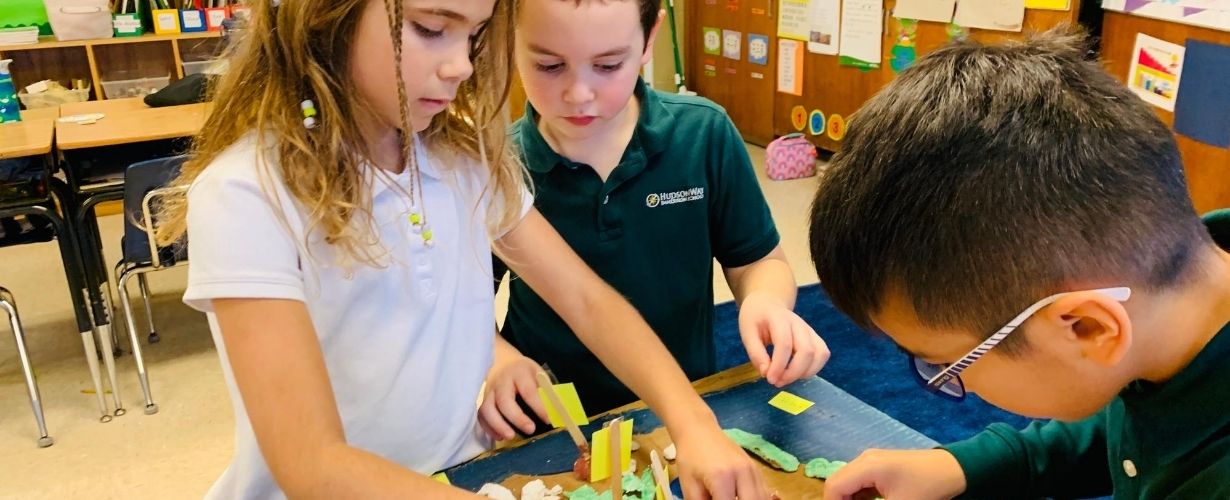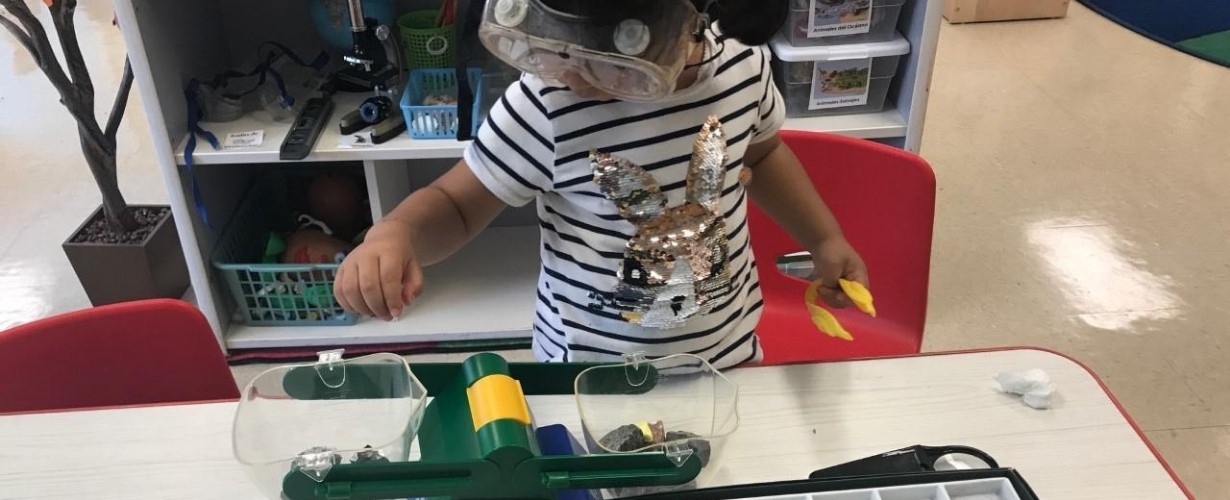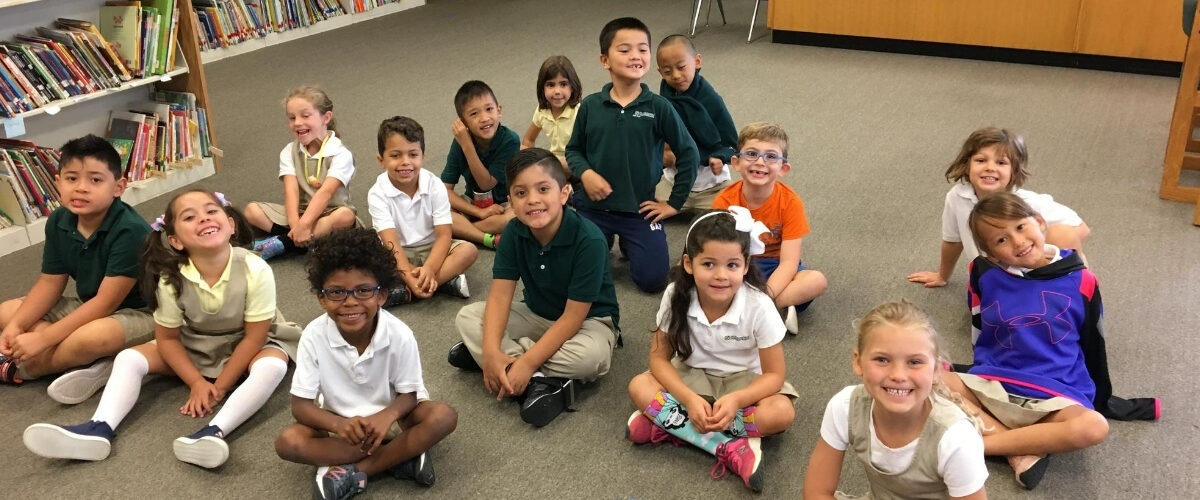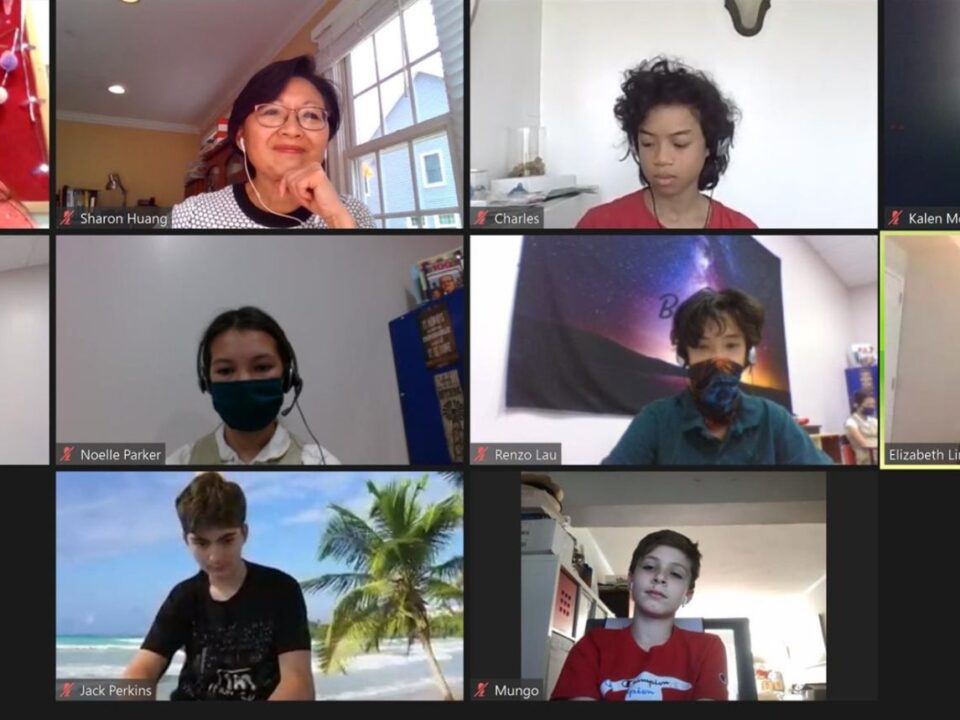
Landform Study – An Example of Project-based Learning
August 19, 2020
Deciding on Full Immersion Private vs. Public School If You Live in North Central NJ
August 20, 2020
More and more, skills such as empathy, self-regulation, listening, and responsibility, among others—also often called social-emotional skills—are being recognized by educators as central to and inextricably intertwined with academic education.
According to a national teacher survey, nine out of 10 teachers believe that social and emotional skills can be taught. Small classroom settings, such as those offered at HudsonWay Immersion School, provide a warm, welcoming environment in which social-emotional development of young children—elementary and middle school-age students—can be more easily encouraged, taught, and supported than in a larger class setting.
Small Class Sizes Encourage Meaningful Relationships
At HudsonWay Immersion School, our classrooms are designed to be smaller in the preschool years. Because this is a unique offering, our classrooms can tend to have 10 to 15 students in our elementary school, and even smaller in middle school at about eight to 12 students.
Meaningful relationships, both between students and adults and between the students and other students, help to improve attitudes, perspectives, and success. It can be advantageous to work with everyone in the classroom in a smaller setting because smaller class sizes provide the perfect opportunity to intentionally teach social and emotional skills such as listening, expressing feelings through words, and empathy. This in turn can naturally lead to the formation of meaningful relationships between teachers and students as well as between students and other students, creating a more well-rounded, supportive environment in which students are encouraged to achieve both academically and interpersonal.
Social and Emotional Skills Are Intentionally Taught Alongside Academics
In our smaller classrooms, our educators have the opportunity to take time to focus on how our students interact with one another, how they are behaving and how they are feeling, and use this information to create conditions in the classroom setting that are conducive for not only feeling welcome, comfortable and connected, but also for overcoming academic challenges.
These types of more meaningful connections and relationships can make students feel cared for and help them to learn to care for others and develop their social and emotional skills in addition to learning essential academic subjects and skills.
Bilingual Learning Helps Improve Social-Emotional Development
Believe it or not, bilingual education supports the development of social and emotional skills, too. Learning in two languages helps to improve a child's performance in school, their understanding of diversity, integration, and ability to see things through different perspectives and the perspectives of others. It also helps to improve reading abilities, empathy, and attention.
Academic and Social Success Are Both Encouraged in Our Classroom Settings
Our approach of smaller group sizes in classrooms from preschool through middle school together with bilingual education at HudsonWay Immersion School creates an environment that encourages and promotes social and emotional development of our students. We are also committed to intentionally teaching these essential life skills along with academics so that our students develop the skills that they need not only to succeed academically but also socially and personally.
Resources:
Harvard Graduate School of Education, Teaching Social and Emotional Skills All Day
NPR, 6 Potential Brain Benefits of Bilingual Education
Teaching Strategies, Our Approach: Our 38 Objectives
Can a bilingual preschool provide the early childhood environment my child needs?
It’s well known that early childhood is a critical time setting the stage for a child’s success later in life. Is it a good idea to consider a bilingual preschool? How is a child’s development affecting by being in an environment where he or she may not know the language being spoken?
NCBI, Bilingual experience and executive functioning in young children




